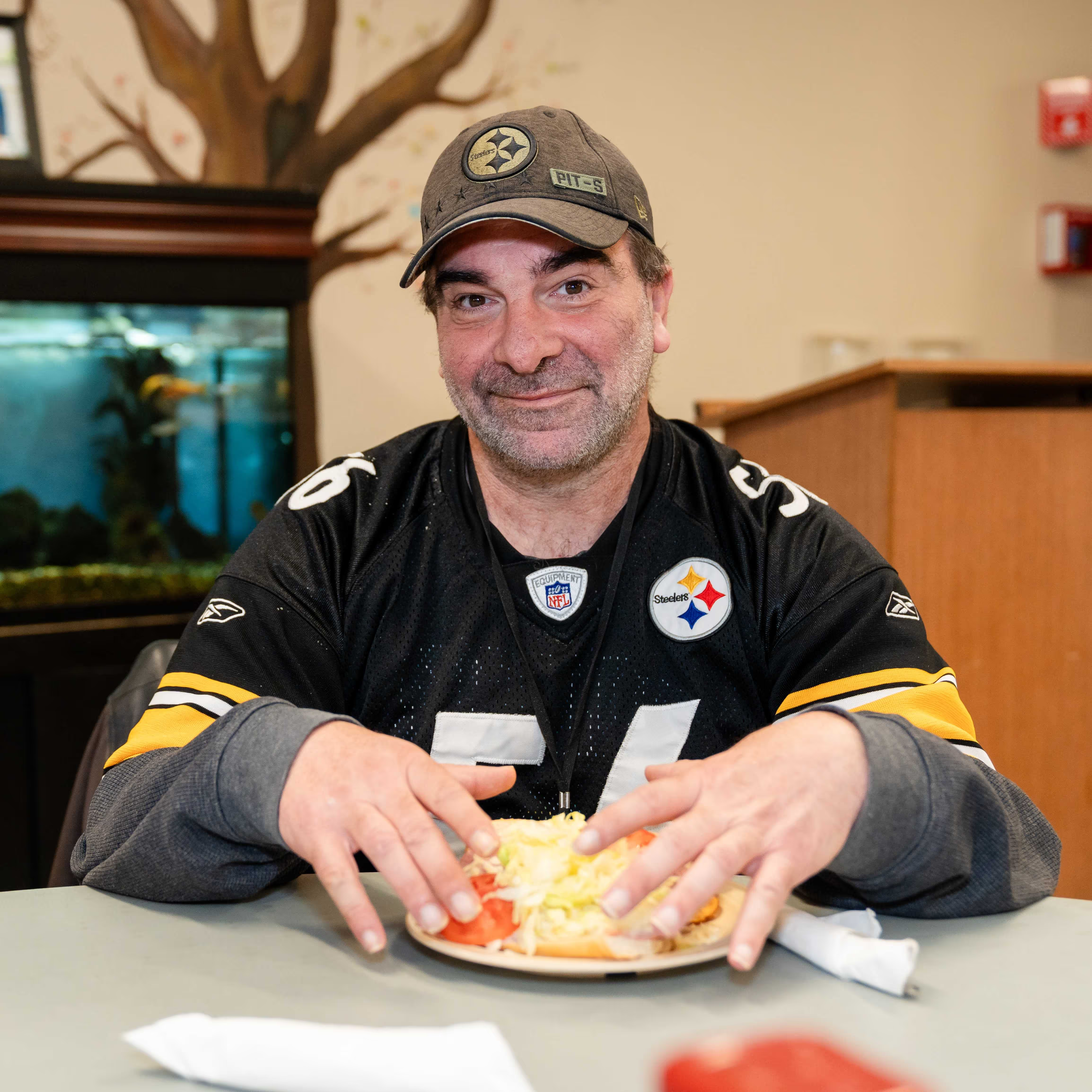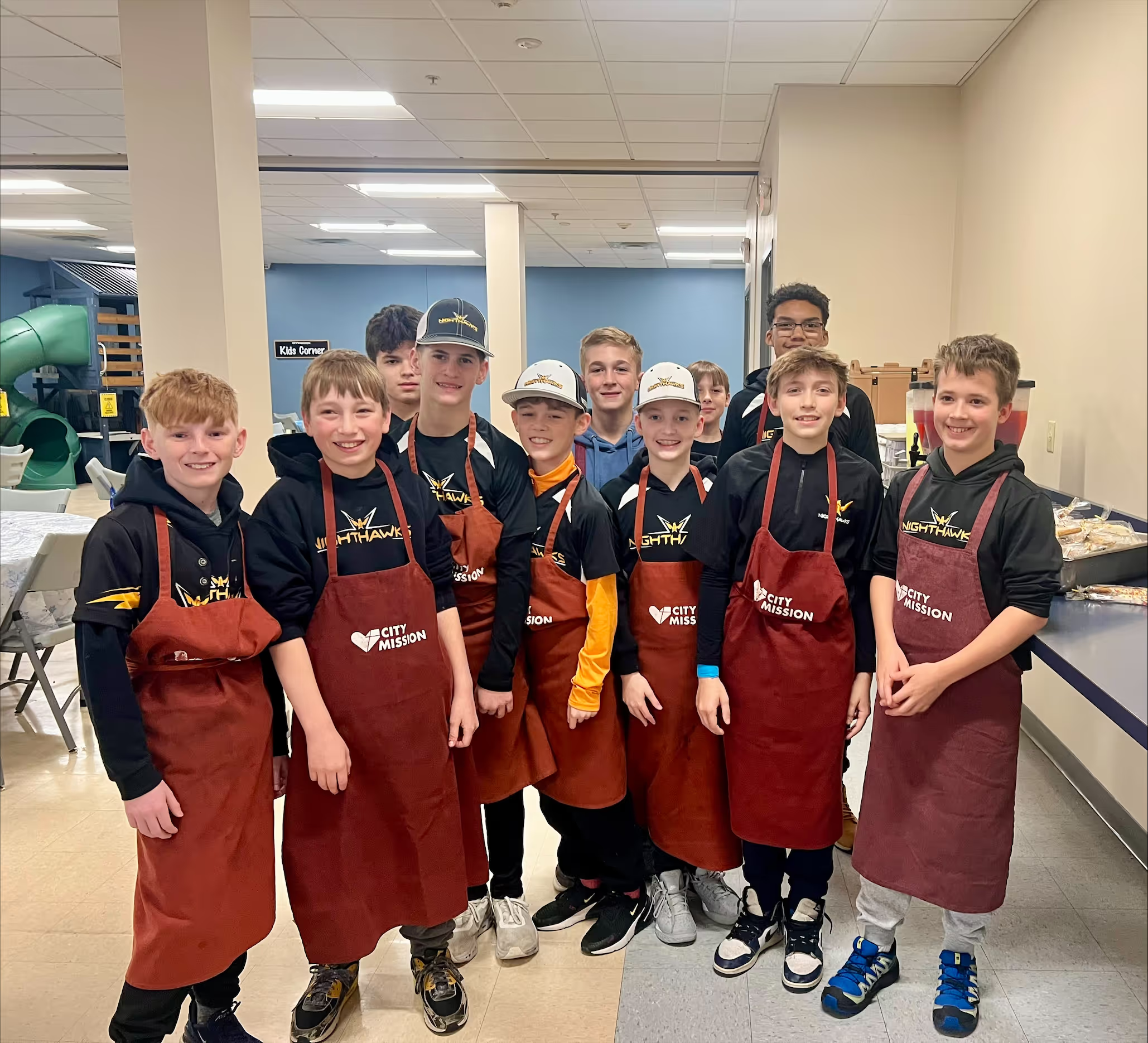Healing the Whole Person Through Christ-Centered Care

December 31, 2025
“The Spirit of the Lord is on me, because he has anointed me to proclaim good news to the poor. He has sent me to bind up the brokenhearted, to proclaim freedom for the captives…” — Isaiah 61:1
In the Bible, we see again and again how Jesus met people’s physical needs alongside their spiritual ones. He fed the hungry, healed the sick, and welcomed those the world had cast aside. At City Mission, we strive to follow that same example.
Homelessness is not just a housing issue. It’s a people issue—one that requires care for the whole person. That’s why City Mission doesn’t just provide shelter. We walk with people through recovery, medical care, job readiness, and spiritual restoration.
Because healing doesn’t happen in a vacuum. It happens in relationship, with Christ at the center. A Safe Place to Begin Again
For many, the first step toward healing begins with simply having a safe place to rest. City Mission provides that safety through its shelter programs for men, women, and children—offering more than a bed, but a stable, supportive environment where healing can start.
Hali, a former resident, remembers what that felt like.
“City Mission gives you a sense of relief,” she said. “It gives you the knowledge that you have support and that you’re not alone. You don’t ever have to be afraid to ask for help.”
For Hali, the shelter was more than temporary housing. It was a turning point. With the support of staff and the fellowship of others walking similar paths, she began to rebuild—emotionally, spiritually, and practically.
Today, City Mission operates five long-term shelters for men, women, women with children, and veterans—providing space for up to 212 individuals at a time. These shelters serve as a foundation for deeper recovery, stability, and transformation. Treating the Body with Compassion
Healing the whole person means addressing physical health as well. Many people experiencing homelessness suffer from untreated conditions—chronic pain, infections, mental health struggles—that make it difficult to move forward.
City Mission’s onsite Medical Clinic steps into that gap.
Through the work of a full-time nurse and volunteer medical professionals from the local community, residents receive free preventive, primary, and urgent care. The City Mission Medical clinic partners Centerville Clinics to offer comprehensive services and connect patients to ongoing treatment.
For someone who hasn’t seen a doctor in years—or who’s been discharged from the hospital with nowhere to go—this care can be lifesaving. A Path Toward New Life
Addiction and homelessness often go hand in hand. Many of the men and women who come to City Mission are seeking freedom from drugs or alcohol, but they need more than detox. They need hope. They need support. And they need a long-term plan.
City Mission’s faith-based recovery programs offer just that.
Residents participate in counseling, life skills classes, Bible studies, and mentorship—building new foundations for a sober, purpose-driven life. They’re surrounded by people who believe in their future, even when they can’t yet see it for themselves.
In this environment of structure, grace, and accountability, lives are being transformed every day. Men and women are breaking generational cycles, healing family relationships, and discovering God’s call for their lives. From Survival to Stability
Once someone has found safety, healing, and sobriety, the next step is building a sustainable future. City Mission’s career training programs help residents take that step with confidence.
Each resident works with staff to develop a personalized employment plan, whether that means pursuing training, earning a certification, or returning to the workforce after years away.
In 2024 alone, 129 jobs were obtained by City Mission residents.
Beyond job placement, the program builds self-esteem. It reminds people that they are not defined by their past, but by their potential. It equips them not just to survive—but to thrive. Meeting Needs Beyond the Mission Walls
Not everyone who needs help can come into a shelter. That’s why City Mission extends its services beyond campus—meeting individuals and families in our community where they are.
Through programs like the Samaritan Care Food Pantry and WeCare Street Outreach, City Mission provides food, hygiene items, medical care, and compassion to people experiencing hardship throughout Washington County.
We also offer meals and clinic access to non-residents, ensuring that no one has to face crisis alone.
This outreach reflects the heart of Christ’s ministry: going out to the hurting, the hungry, the unseen, and offering dignity and love. You Can Be Part of the Mission
At City Mission, every service we offer is rooted in our faith. We believe that every person is created in the image of God and worthy of love, safety, and second chances.
We also believe that real change happens when communities come together to lift one another up.
That’s where you come in.
Your support and donations makes it possible to meet physical needs, offer critical services, and share the hope of Christ with those in crisis. Whether you give, volunteer, or pray alongside us, your partnership helps transform lives.
Give today to help us continue healing the whole person—body, mind, and spirit.






